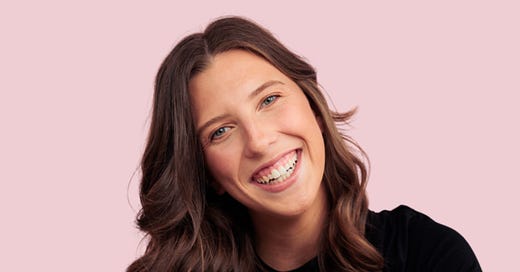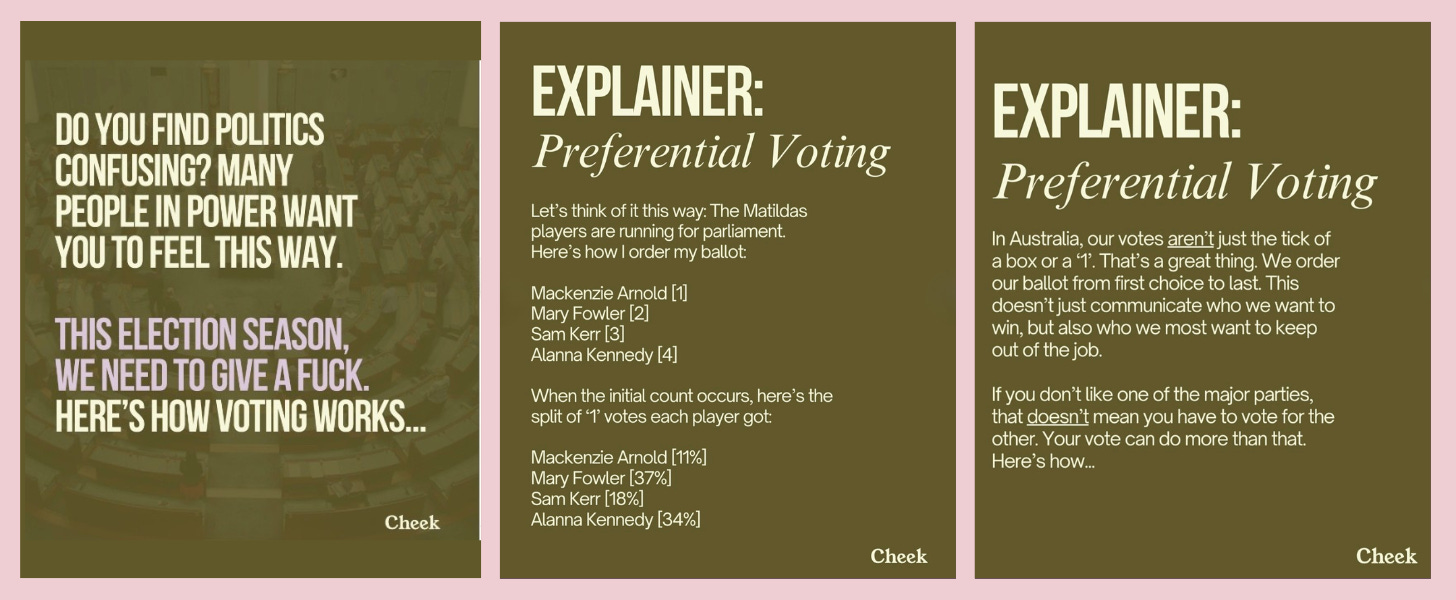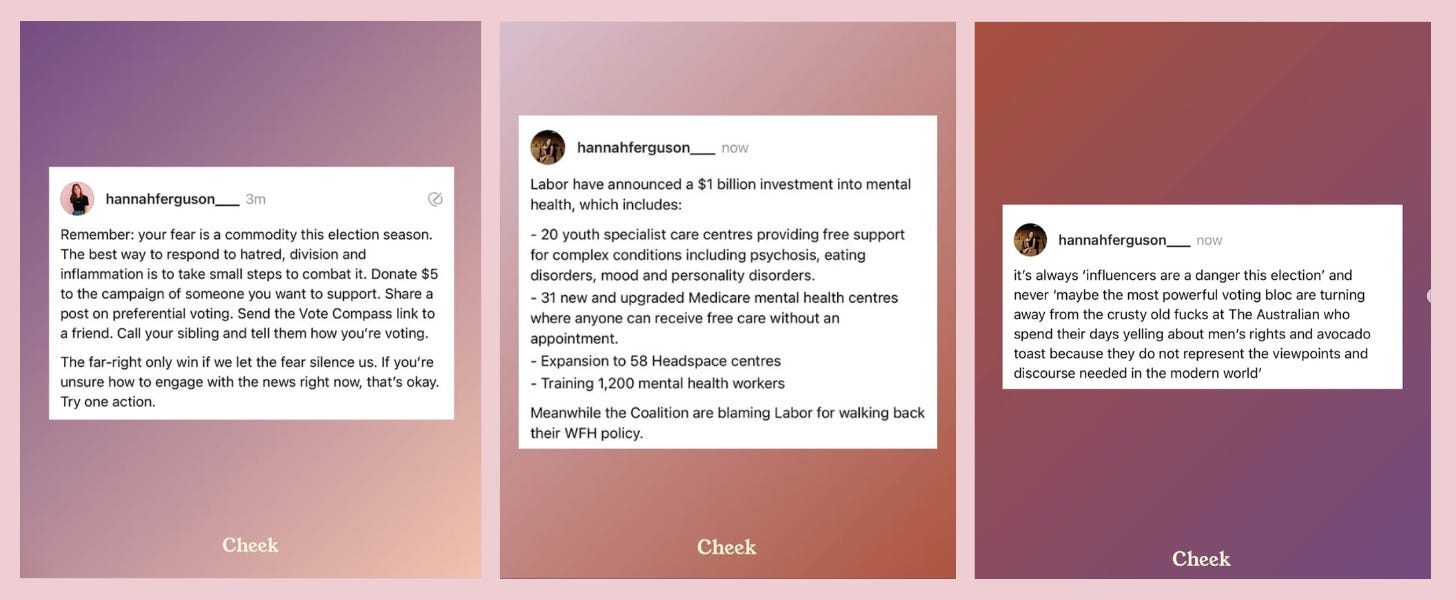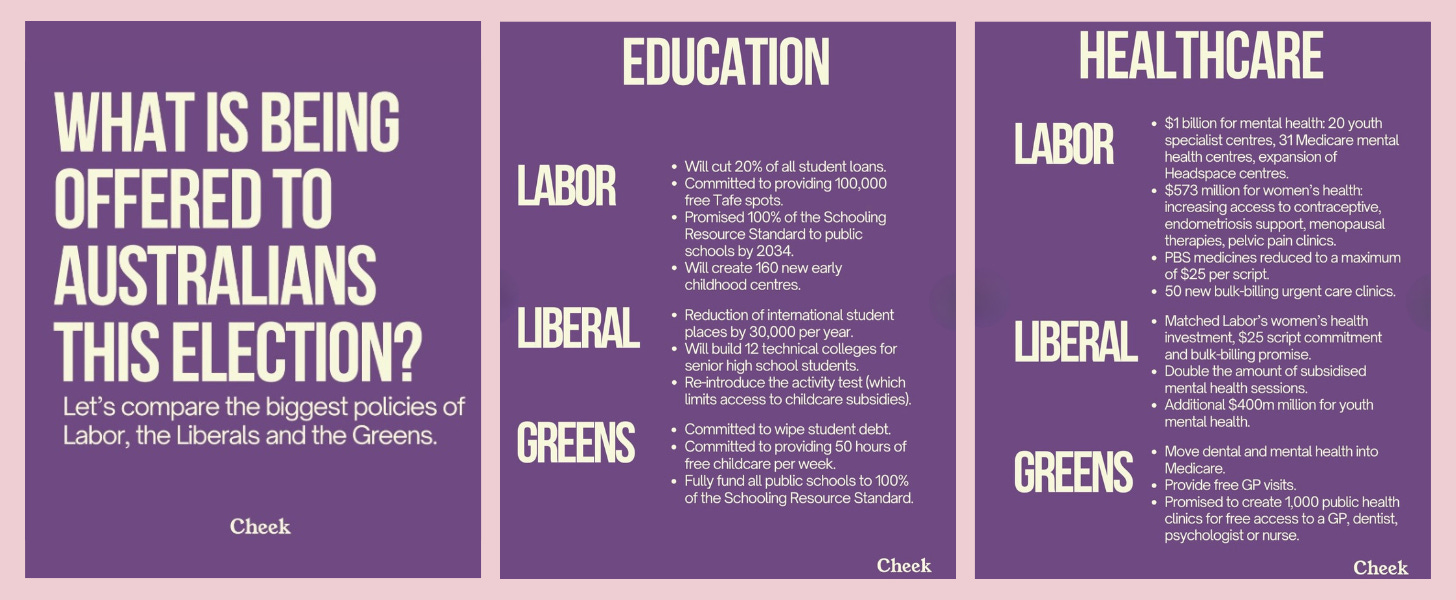Growing up, politics felt like a foreign language I was never taught.
Words like legislative, coalition, and referendum built an invisible wall between me and something I sensed was important, but never quite understood.
Maybe I wasn't paying enough attention in school. Or maybe the system was never designed for people like me – Zillennial women more fluent in Instagram trends than policy papers.
Either way, I felt too dumb to understand – and too embarrassed to admit it.
Politics always felt like a prestigious boys’ club. Old white men in suits, making important decisions I didn’t understand, in rooms I'd never be invited into.
As a young woman, I couldn't see myself reflected in that world. And it didn't seem to see me either. So, I looked the other way.
Traditional media – especially Murdoch media – only made things worse.
The tone. The structure. The elitist vocabulary.
It didn’t just feel inaccessible – it felt like gatekeeping. Like political knowledge was intentionally being kept just out of reach.
It wasn’t that I didn’t care about politics. I just didn’t know how to care in a way that felt informed… or even welcome.
And then, Hannah Ferguson entered the chat.
Through her news commentary platform Cheek Media, Hannah started explaining politics in a way that finally made sense.
Not in a patronising “politics for dummies” way that makes you feel like you’re already behind. But more like a (super smart) friend breaking something important down over coffee.
“I know how to communicate complex legal and political ideas in simple and engaging ways," she recently said in her address to the National Press Club. And she's so fucking right.
When Hannah explains big concepts – like how federal voting works – she doesn’t start with jargon-heavy textbooks. She starts with Taylor Swift.
“Think of above-the-line versus below-the-line Senate voting like voting for a Taylor Swift album versus voting for individual tracks,” she recently said on KICPOD. “Reputation is the political party – that’s the album – and the tracks are the individual candidates.”
It’s clever. But more than that, it’s welcoming.
Hannah’s approach feels like quiet permission – to show up exactly as you are, to start from where you’re at, and to learn without shame. Because she knows what traditional media often forgets:
Complexity doesn’t make something more important.
Clarity does.
Millennials and Gen Z now make up the majority of the Australian electorate. We hold the most political power – but we’re also the most disillusioned.
The traditional two-party system doesn’t speak to us anymore.
Our values and priorities rarely feel represented.
And we’re fucking tired of old white men speaking in jargon, avoiding accountability, and seeming completely disconnected from the digital, values-driven world we live in – talking at us, instead of with us.
That’s why voices like Hannah’s matter more than ever.
Some critics have tried to dismiss her as just another “self-obsessed and self-promoting influencer” (looking at you, Financial Times). But Hannah – rightfully – sees herself as something a little more nuanced:
A political commentator who shares a lot of her personal life.
And that transparency is her power.
She shows us how she thinks. What media she consumes. How she builds her views. Not to lecture, but to model.
She invites us into the process, making political thinking feel like something we can (and should) do, too.
Hannah gets that most of us don’t care about the federal budget – not because we’re apathetic, but because no one ever explained to us why it matters.
So instead of starting with macroeconomics, she breaks down what a budget lockup is. She lets us know what’s in the budget – for our rent, our degrees, our jobs, our future.
Then she delivers it in formats we already engage with: Instagram reels, podcast episodes, carousel slides to save and send to group chats.
She meets us where we are, and helps us take that next step.
That’s how trust is built.
Not through polished corporate detachment, but through honesty.
Through relevance. Through empowerment.
She’s not trying to replace journalists. She’s creating a new pipeline to political engagement.
Closing the gap between I care and I get it.
And in doing so, she’s proven that the real barrier to young people’s political participation isn’t apathy. It’s access.
Because when information is presented with clarity, respect, and cultural relevance:
Engagement follows.
Confidence follows.
Change follows.
Through Cheek Media, Hannah didn’t just make politics accessible. She made it cool to be informed.
She reminded us that politics isn’t reserved for the powerful. It’s shaped by the people who show up.
And thanks to her, more of us are finally ready to.












I fell in love with Cheek, then I read ‘Bite Back’ and I fell in love with Hannah. She created a space for women to enter journalism independently in Australia, if it wasn’t for her I probably wouldn’t have started my Substack!
fuck politics.its an orgy of scum.
Fight back and resist. And Dont fear the reaper.